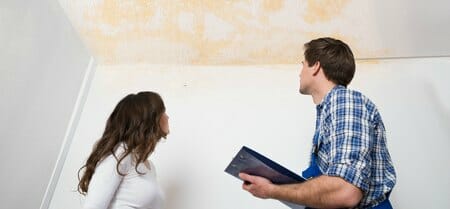The Six Most Common Water Leaks in Your Home: How They Happen and What to Do
The Six Most Common Water Leaks in Your Home: How They Happen and What to Do
Blog Article
We've discovered the article relating to How to Find Water Leaks below on the internet and figured it made good sense to discuss it with you in this article.

Leaks not just cause waste of water yet can likewise trigger unnecessary damage to your residence as well as advertise unwanted organic development. By looking and also recognizing for day-to-day circumstances that trigger leakages, you can safeguard your house from future leakages and also unneeded damage.
Trespassing roots
Most water leakages begin outside the home instead than inside it. You may see damp patches or sinkholes in your lawn, and that may mean that tree roots are attacking water lines triggering water to permeate out.
Corroded water systems
This might be the cause of discoloration or warping on your water pipes. If our plumbing system is old, take into consideration replacing the pipes given that they are at a higher risk of deterioration than the newer models.
Faulty Pipeline Joints
Pipeline joints can deteriorate over time, resulting in water leakages. If you have loud pipes that make ticking or banging sounds, especially when the warm water is transformed on, your pipeline joints are most likely under a whole lot of stress.
Instant temperature changes.
Severe temperature level modifications in our pipes can create them to increase as well as acquire suddenly. This expansion and contraction may cause splits in the pipelines, particularly if the temperature are below freezing. It would be best if you kept an eye on just how your plumbing functions. The presence of the formerly pointed out conditions regularly shows a high threat.
Poor Water Connectors
At times, a leak can be triggered by loosened pipes and also pipelines that supply your appliances. In situation of a water connections leak, you might see water running straight from the supply line or pools around your home appliances.
Obstructed Drains
Clogged drains could be bothersome and inconveniencing, but they can occasionally end up triggering an overflow leading to burst pipelines. Keep getting rid of any type of materials that may drop your drains pipes that can clog them to stay clear of such aggravations.
All the above are root causes of leaks but not all water leaks arise from plumbing leakages; some leaks may originate from roofing system leakages. All leakages should be repaired promptly to avoid water damage.
Leakages not just cause waste of water however can additionally create unnecessary damage to your house and also promote unwanted organic development. By looking and recognizing for everyday scenarios that cause leakages, you can safeguard your residence from future leakages and also unnecessary damage. Today, we will look at 6 leak triggers that might be causing your pipes to trickle.
At times, a leakage can be triggered by loosened pipes as well as pipes that provide your appliances. In instance of a water links leak, you may see water running straight from the supply line or pools around your appliances.
How To Check For Water Leak In Your Home
How To Check for Leaks
The average household's leaks can account for nearly 10,000 gallons of water wasted every year and ten percent of homes have leaks that waste 90 gallons or more per day. Common types of leaks found in the home are worn toilet flappers, dripping faucets, and other leaking valves. These types of leaks are often easy to fix, requiring only a few tools and hardware that can pay for themselves in water savings. Fixing easily corrected household water leaks can save homeowners about 10 percent on their water bills.
To check for leaks in your home, you first need to determine whether you're wasting water and then identify the source of the leak. Here are some tips for finding leaks:
Take a look at your water usage during a colder month, such as January or February. If a family of four exceeds 12,000 gallons per month, there are serious leaks.
Check your water meter before and after a two-hour period when no water is being used. If the meter changes at all, you probably have a leak.
Identify toilet leaks by placing a drop of food coloring in the toilet tank. If any color shows up in the bowl after 10 minutes, you have a leak. (Be sure to flush immediately after the experiment to avoid staining the tank.)
Examine faucet gaskets and pipe fittings for any water on the outside of the pipe to check for surface leaks.
Undetected water leaks can happen without the home or business owner even realizing. If you suspect a water leak, but not able to find the source. It is time to contact a professional water leak detection service, The Leak Doctor.
How To Find a Water Leak In Your Home
https://www.leakdoctor.com/blog/How-To-Check-For-Water-Leak-In-Your-Home_AE197.html

Do you enjoy reading up on How to detect water leaks in your home? Make a remark directly below. We would be glad to know your insights about this piece. We hope to see you back again in the near future. Loved our article? Please share it. Help other people locate it. Many thanks for your time. Please come visit our site back soon.
Hire A Pro Report this page